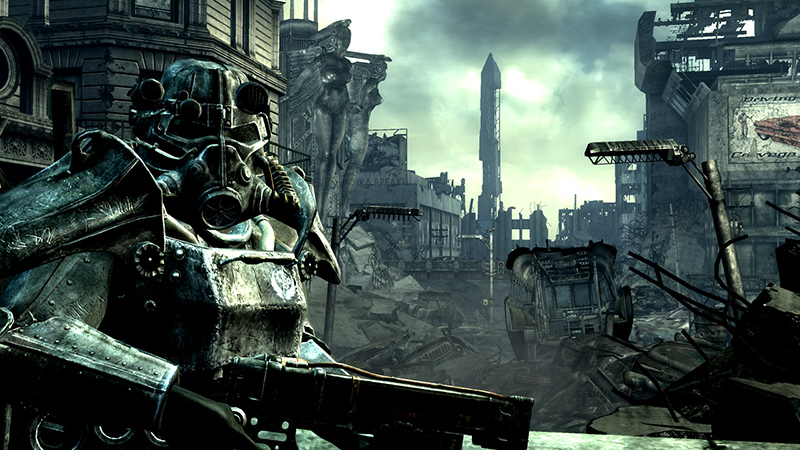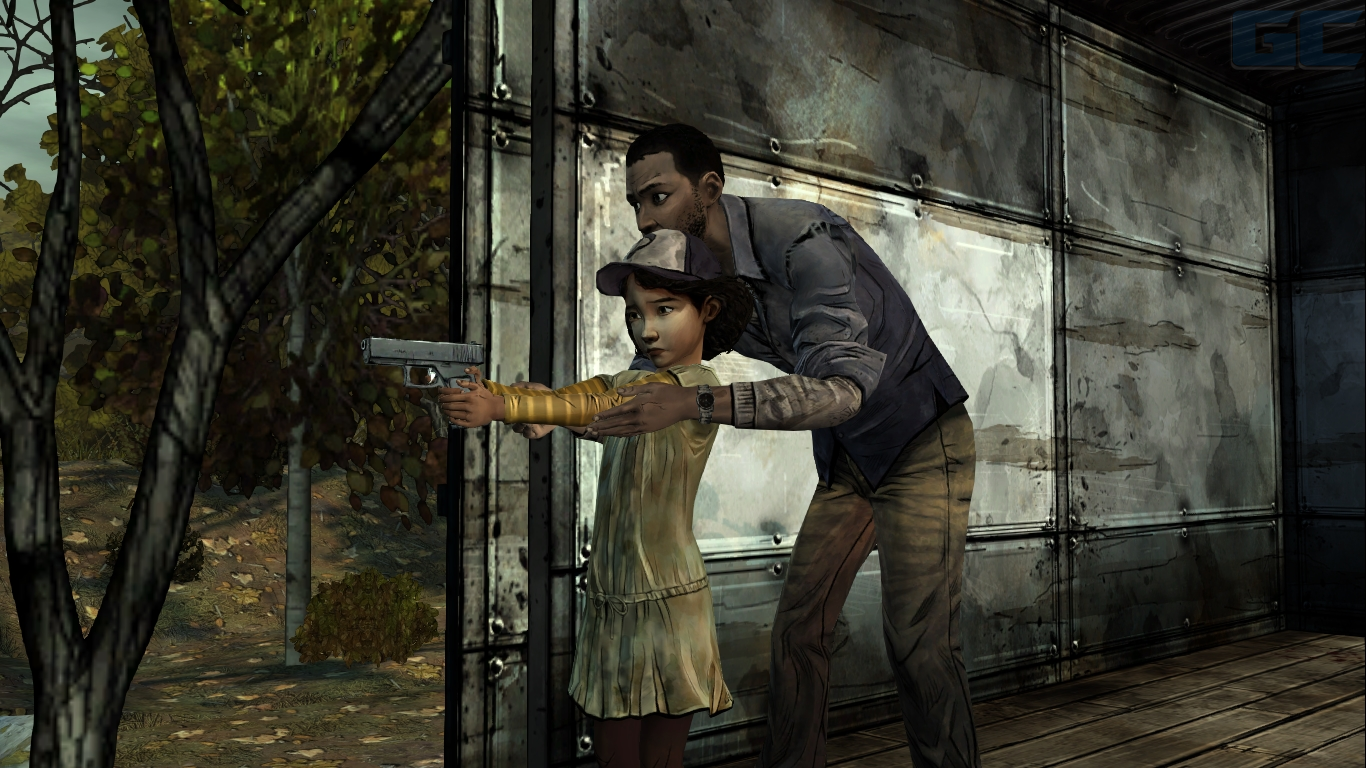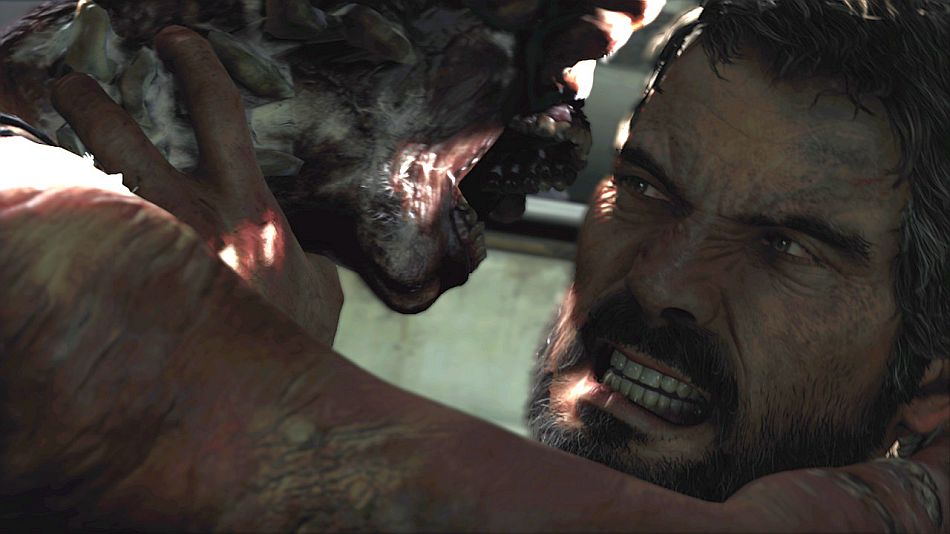Question: You tentatively make your way through a dimly lit corridor. You can hear footsteps on the floor above you, though you do not know who they belong to. Ammunition is sparse in this post-apocalyptic world, and with only three bullets left in your pistol, you cannot afford to become embroiled in another shootout. You reach a set of stairs and, after crouching in order to avoid being detected, you nervously begin walking up them, your finger pressed against the trigger of your gun.
Which game is this scene from?
A: Fallout 3
B: The Last of Us
C: Metro: Last Light
D: I Am Alive
E: DayZ
F: The Walking Dead
G: Other
Answer: If you answered A, B, C, D, E or F, you are correct. If you answered G, you could also be correct. The truth is that there are a lot games that pit players in this exact scenario, so any of these answers is acceptable.
So why do we so frequently find ourselves exploring the abandoned Earth, confronted by the mutated leftovers of the human race? And why does the post-apocalyptic wasteland setting remain such a popular destination among gamers? Have we not yet had our fill of the same muddied colour palette and hostile oversized rats/spiders?
The conversation that stems from asking the question “What would you do in an apocalypse?” invokes a multitude of varied responses. Some would stay indoors with whatever food they had left, arming themselves with the sharpest cutlery from out of their kitchen drawers and hoping that the monstrosities that were left wandering outside wouldn’t try to force their way in. Others are adamant that they’d take a more gung-ho approach, allowing their inner Bear Grylls to take control as they fight for survival in the not-very-great outdoors. Post-apocalyptic games allow us to play out this fantasy, so in that sense the reasoning behind their popularity is obvious. However, there is a more not-so-obvious fantasy that these games allow us to play out, too, that is also integral to their continued success.

The male power fantasy is more commonly associated with games that arm you to the teeth with weaponry and have you mowing down enemies with superhuman efficiency, but although you are often made to feel more vulnerable in games such as The Last of Us and Fallout 3, the truth is that this vulnerability only exists to empower you when you become more accustomed to life in the apocalyptic world, and while you may not be able to run in guns blazing as you would in games where ammo is plentiful, surviving in a world where almost every other human has failed warrants a bigger sense of achievement than simply barrelling your way through bad guys with a shotgun.
The player’s interactions with NPCs and the game world also help fulfil this power fantasy. Joel and Ellie’s relationship in The Last of Us may not be your archetypal gaming male/female partnership, in that Ellie proves herself to be a well-rounded character and actually useful, but her existence in the game is to give the player a sense of purpose and responsibility. As Joel you are responsible for Ellie, and to paraphrase Spider-Man’s Uncle, with power comes responsibility. This dynamic is also used in Telltale Games’ The Walking Dead Season One, where players again find themselves tasked with ensuring the safety of a young female companion. While I am in no way suggesting that either of these games is sexist for placing the onus of a female character’s well-being upon a male protagonist, I am pointing out that by doing so they are in keeping with the themes of video games that are said to exemplify the male power fantasy.

Many games with a post-apocalyptic setting also offer you freedom in your decisions. In The Walking Dead, the survival of your companions hinges entirely upon the decisions you make. In Fallout 3, you are awarded either good or bad ‘Karma’ depending upon the morality of the choices you make—some players may find themselves being branded the ‘Hero of the Wastes’ if they have played the game justly, while others will receive a far less flattering title such as ‘Evil Incarnate’. In these games, despite the world having crumbled to its knees, you still have a huge impact upon it and those who inhabit it. As the apocalypse rids these game worlds of democratically elected governments and police forces, you are left to fight for your survival, and it is this animalistic pursuit of dominance that makes the post-apocalyptic world the ideal setting for players to enact the male power fantasy.
Ultimately, the post-apocalyptic setting appeals to the basic instincts of gaming’s largest target demographic of 18-30-year-old males, by placing them in a world free of the rules and restrictions of modern society and tasking them with fighting their way to the top, or to act as a protector to their fellow survivors. Whereas other games may strengthen your ego by placing you in the boots of a protagonist who can wipe out armies of men with his bare hands, games such as The Last of Us and The Walking Dead appeal to us for similar reasons, but by using very different, more subtle methods.







